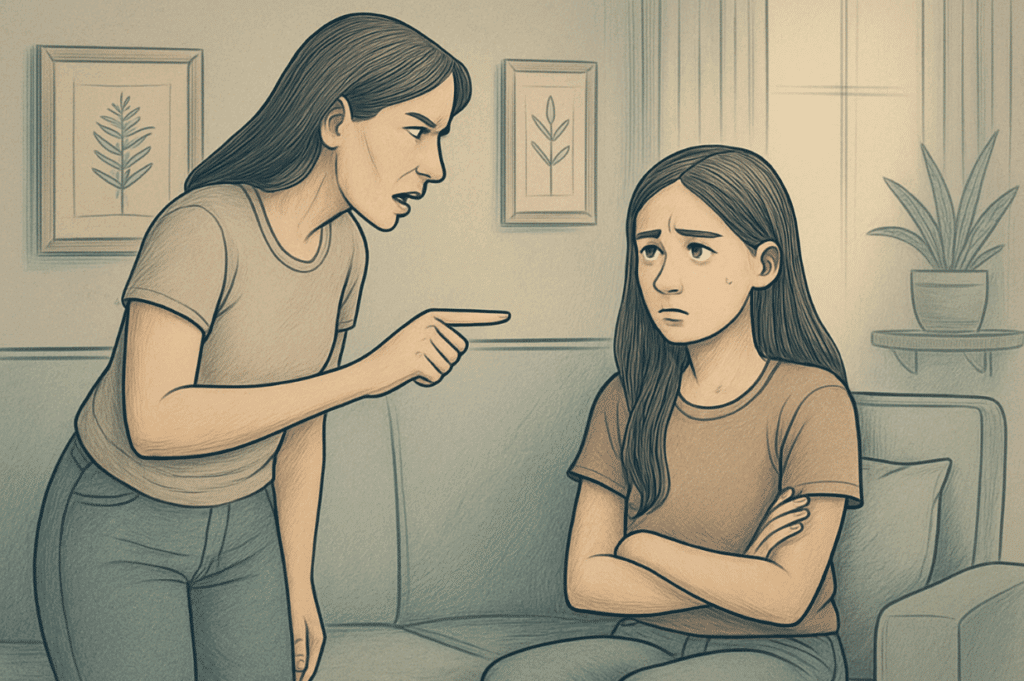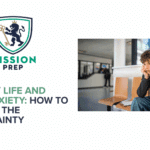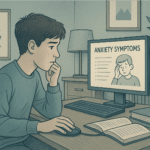Key Takeaways
- Emotional abuse in teens can be more damaging than physical abuse, causing long-term mental health issues like depression, anxiety, and low self-esteem.
- Warning signs include negative self-talk, social withdrawal, and unexplained fear of making mistakes—behaviors often mistaken for “normal teen angst.”
- Physical symptoms without medical cause, such as chronic headaches, stomach issues, and fatigue, can be manifestations of emotional abuse.
- Recovery from emotional abuse requires rebuilding self-worth through therapy, support networks, and learning healthy relationship boundaries.
- Mission Prep Teen Treatment offers specialized trauma-focused therapy including CBT, EMDR, and DBT to help teens recover from emotional abuse through individualized treatment plans in a safe, supportive environment.
Recognizing the Silent Pain: Why Teen Emotional Abuse Often Goes Unnoticed
Emotional abuse is often called the “invisible trauma” because it lacks the obvious markers of physical or sexual abuse. The subtle nature of emotional abuse allows it to hide in plain sight, with many adults dismissing concerning behaviors as “just a phase” or “typical teen attitude.”
Many teenagers themselves don’t recognize that they’re being emotionally abused. The normalization of harmful behavior happens gradually, especially when the abuse comes from parents or authority figures. Teens may believe that constant criticism, manipulation, or control are normal parts of relationships because they haven’t experienced healthier alternatives.
The consequences of unaddressed emotional abuse are far-reaching. Studies indicate that emotionally abused teens face higher risks of developing depression, anxiety disorders, post-traumatic stress disorder, and substance abuse problems. The psychological impact often extends into adulthood, affecting career success, romantic relationships, and even physical health outcomes.
Mission Prep Healthcare specializes in mental health treatment for teens aged 12-17, offering residential and outpatient programs for anxiety, depression, trauma, and mood disorders. Our therapies include CBT, DBT, EMDR, and TMS, tailored to each adolescent’s needs.
With a structured, supportive environment, we integrate academic support and family involvement to promote lasting recovery. Our goal is to help teens build resilience and regain confidence in their future.
10 Warning Signs of Emotional Abuse in Teens
1. Sudden Drop in Self-Esteem and Negative Self-Talk
Teens experiencing emotional abuse often internalize the negative messages they receive.
A once-confident teenager might begin regularly putting themselves down, using phrases like “I’m so stupid” or “I can’t do anything right.” This negative self-talk reflects the critical voice of your abuser that you’ve internalized.
2. Increasing Anxiety and Panic Attacks
Emotional abuse creates an environment of unpredictability and tension that can manifest as anxiety disorders in teens. Signs include excessive worry about everyday situations, difficulty concentrating, restlessness, and irritability that seems disproportionate to circumstances.
Some teens may develop physical symptoms of anxiety like racing heartbeat, sweating, trembling, or shortness of breath.
3. Social Withdrawal From Friends and Activities
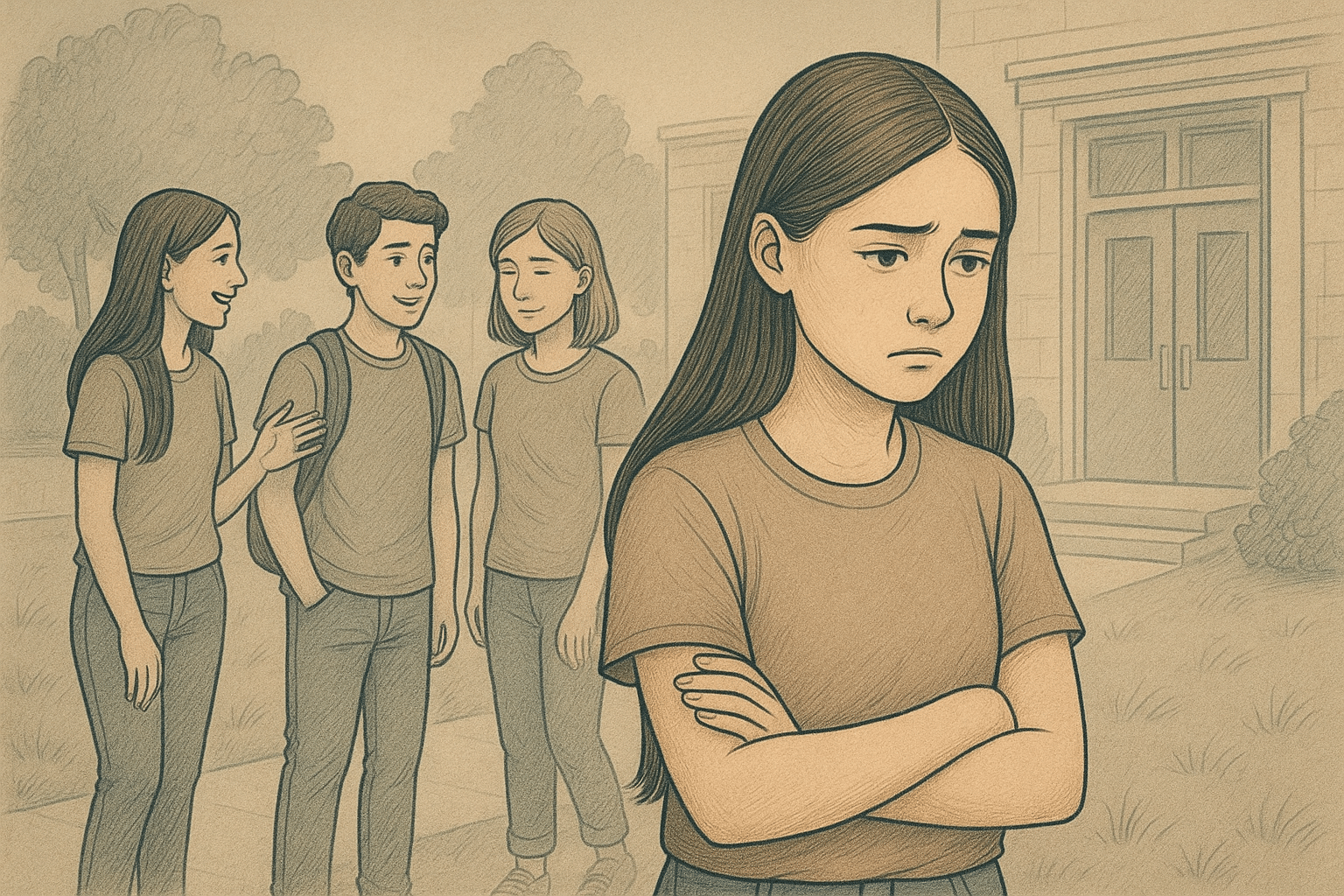
A teenager who suddenly pulls away from long-standing friendships and activities they once enjoyed may be experiencing emotional abuse.
Social withdrawal often stems from shame, fear of being judged, or direct restrictions imposed by the abuser. You may make excuses to avoid social gatherings or quit teams and clubs that previously brought you joy.
This isolation serves the abuser’s interests by cutting off your support network and removing outside perspectives that might challenge the abuse.
4. Drastic Changes in Eating or Sleeping Habits
Emotional abuse can profoundly disrupt basic biological functions like eating and sleeping. Some teens respond to emotional trauma by dramatically increasing or decreasing food intake. Food might become a source of comfort and control or something to reject when feeling worthless.
Sleep disturbances are equally common. Many emotionally abused teens develop insomnia, struggling to fall asleep amid anxious thoughts or replaying hurtful interactions. Others may sleep excessively as a form of escape or experience nightmares that disrupt their sleep quality.
5. Excessive People-Pleasing Behaviors
When teens learn that their value depends on appeasing others, they often develop hypervigilance about others’ needs and reactions. You may become overly accommodating, constantly sacrificing your own preferences and boundaries to avoid conflict or criticism.
This excessive people-pleasing extends beyond normal teenage desire for approval. You anticipate others’ needs before they’re expressed and react with disproportionate distress when you believe you’ve disappointed someone. This behavior reflects a core belief instilled by emotional abuse: that your worth depends entirely on your usefulness to others.
6. Unexplained Fear of Making Mistakes
Emotionally abused teens often develop an intense fear of making mistakes or failing at tasks. They’ve learned that errors lead to disproportionate negative consequences, ridicule, withdrawal of love, or emotional manipulation.
This fear manifests as perfectionism, procrastination, or outright avoidance of challenges.
7. Mood Swings and Emotional Outbursts
While mood fluctuations are common in adolescence, emotionally abused teens often display extreme emotional volatility that exceeds typical teenage mood swings.
You might cycle rapidly between depression, anger, and anxiety in response to seemingly minor triggers. This emotional dysregulation stems from living in an environment where your feelings are invalidated or where you must constantly suppress your authentic emotional responses.
8. Decline in Academic Performance
A consistent decline in academic performance can signal emotional abuse. Concentration becomes difficult when a young mental resource is consumed by managing an abusive relationship or environment.
The cognitive impact of chronic stress impairs memory formation and information processing, directly affecting learning capacity.
9. Secretive Behavior and Reluctance to Discuss Home Life
Teens normally desire privacy, but emotionally abused adolescents often display a heightened secrecy specifically around their home life or certain relationships. You notice that you change the subject when family or a particular friend/partner is mentioned, or give vague, sanitized answers to direct questions about your personal relationships.
This secretive behavior stems from multiple sources: shame about the abuse, fear of not being believed, or direct threats from the abuser about “keeping family business private.”
10. Physical Symptoms With No Medical Cause
The mind-body connection is powerful, and emotional abuse often manifests as physical symptoms that have no identifiable medical cause. These symptoms often follow a pattern related to interactions with the abuser.
You might develop stomachaches only on days you need to see a particular person, or headaches that intensify during certain social situations. When standard medical treatments don’t resolve these issues, emotional trauma should be considered as a potential cause.
Breaking the Cycle: Healing Strategies for Emotionally Abused Teens
Building a Support Network Beyond the Abusive Relationship
Creating connections outside the abusive relationship is crucial for recovery. You need to experience healthy interactions that counter the negative messages you’ve internalized.
This network might include trusted family members, school counselors, teachers, coaches, or parents who can provide consistent, positive support. These relationships help recalibrate your understanding of normal social interactions and provide safe spaces for authentic self-expression.
Therapy Approaches That Work for Teen Trauma
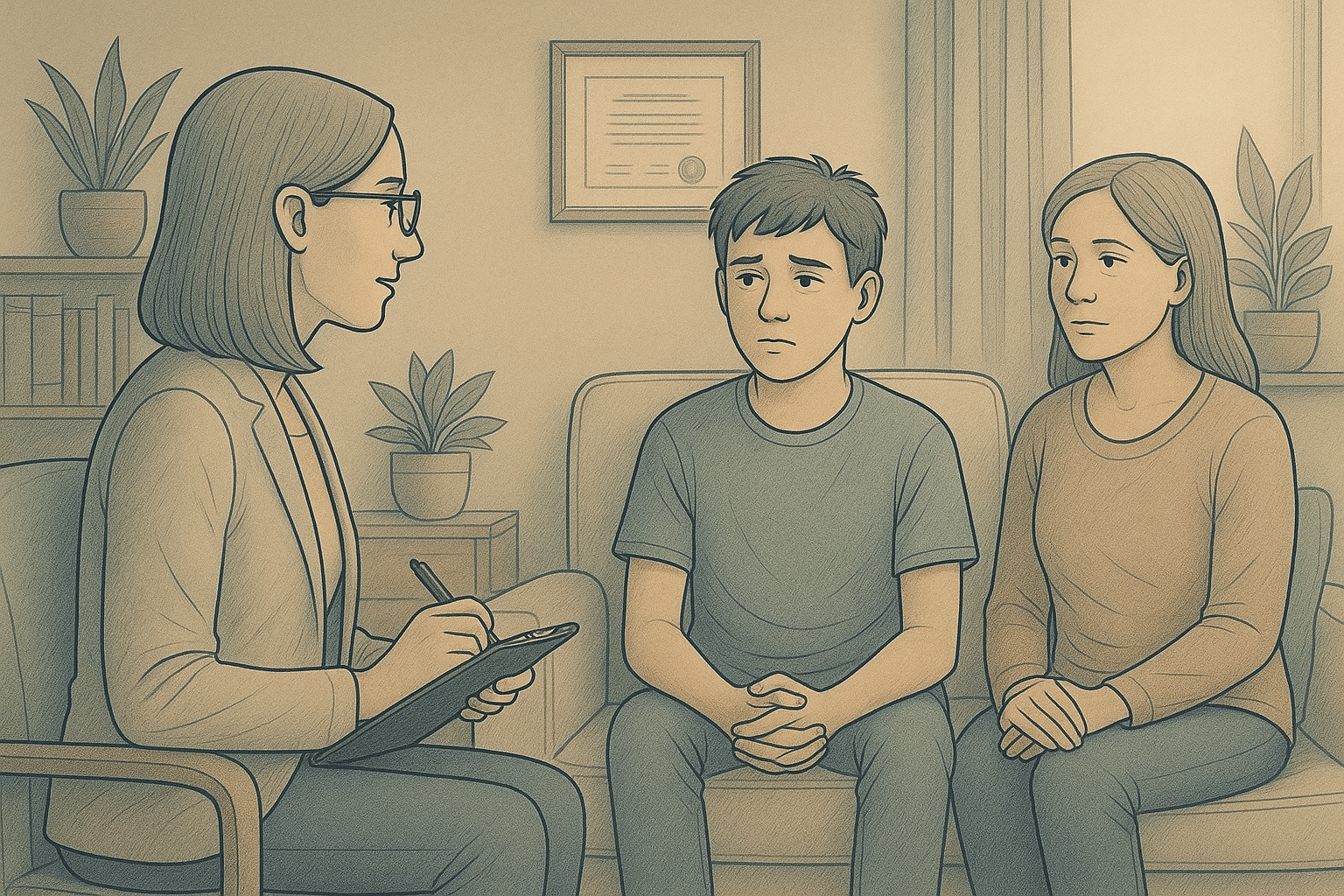
Several evidence-based therapeutic approaches have proven effective for teens recovering from emotional abuse.
Trauma-Focused Cognitive Behavioral Therapy (TF-CBT) helps teens identify distorted thinking patterns resulting from abuse and develop healthier thought processes. This approach combines trauma processing with practical skills for managing emotional responses and building resilience.
Dialectical Behavior Therapy (DBT) teaches emotional regulation, distress tolerance, and interpersonal effectiveness, skills often underdeveloped in emotionally abused teens.
Self-Compassion Techniques for Rebuilding Self-Worth
Self-compassion practices directly counter the harsh self-criticism that emotional abuse instills. Learn to treat yourself with the same kindness you would offer a friend, recognizing that imperfection is part of shared humanity rather than a personal failing.
Simple daily practices, like writing self-compassionate letters or developing personalized self-soothing strategies, gradually rebuild self-worth.
Protecting Teens from Emotional Abuse: Mission Prep’s Comprehensive Recovery Approach
At Mission Prep, we understand that emotional abuse recovery requires specialized, trauma-informed care that addresses both the psychological wounds and their physical manifestations. Our experienced clinical team utilizes evidence-based therapies including Cognitive Behavioral Therapy, EMDR, and Dialectical Behavior Therapy to help teens process their experiences, rebuild self-worth, and develop healthy relationship skills for their future.

Every teenager deserves to feel safe, valued, and emotionally supported, that’s why our facilities offer comfort, safety and structure that aid healing and recovery.
Our individualized treatment approach recognizes that each teen’s experience is unique, requiring personalized strategies that honor their specific trauma history while building resilience and coping skills. Through compassionate, professional care, we help teens reclaim their voice, rebuild their confidence, and develop the tools necessary for healthy relationships throughout their lives.
If you’re a teenager experiencing emotional abuse, don’t wait for the damage to deepen. Contact Mission Prep today to learn how our specialized programs can provide the support and healing you need to thrive.
Frequently Asked Questions
How can I tell if my teen’s behavior changes are normal adolescence or signs of abuse?
Distinguishing between typical adolescent development and abuse responses requires careful observation of patterns, intensity, and context. Normal adolescent behavior includes gradual mood fluctuations, increased privacy, and peer orientation without completely transforming personality or disrupting functioning.
Warning signs of abuse include extreme emotional volatility, complete withdrawal from enjoyable activities, excessive fear of authority figures, secretive behavior about specific relationships, and sudden persistent academic decline.
What should I do if my teen won’t admit they’re being emotionally abused?
Many teens resist acknowledging emotional abuse due to shame, fear, or not recognizing abusive experiences. Rather than forcing confrontation, focus on building trust and safety.
Express specific concerns about observed behaviors and their impact without directly accusing anyone. Provide educational resources about healthy relationships indirectly, and create safe spaces for discussion. Sometimes teens will discuss “a friend’s situation” that mirrors their own, this displacement can be a starting point.
Can emotional abuse cause physical health problems in teenagers?
Yes, the mind–body connection means emotional abuse frequently manifests as physical symptoms. Chronic stress from abuse triggers prolonged cortisol release, suppressing immune function and increasing inflammation.
This explains why emotionally abused teens often experience frequent illnesses, chronic pain, and digestive issues. Sleep disruption from hypervigilance and anxiety impairs physical recovery and growth.
How does Mission Prep help teens recover from emotional abuse?
Mission Prep offers specialized trauma-focused therapy approaches specifically designed for teens recovering from emotional abuse.
Our individualized treatment plans include evidence-based therapies like Cognitive Behavioral Therapy (CBT), Eye Movement Desensitization and Reprocessing (EMDR), and Dialectical Behavior Therapy (DBT).
Our trained professionals understand the unique developmental needs of adolescents and provide safe, empathetic environments for healing.


